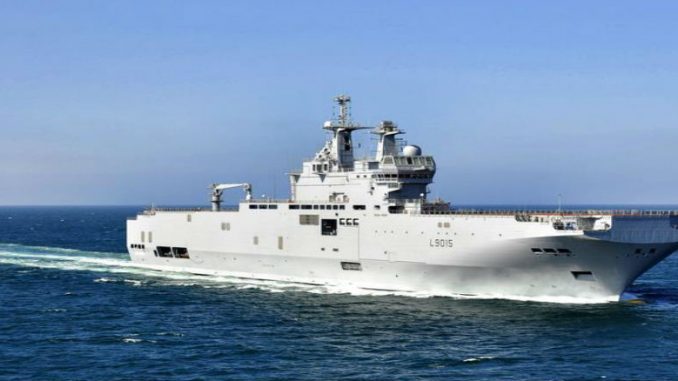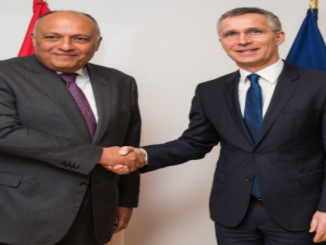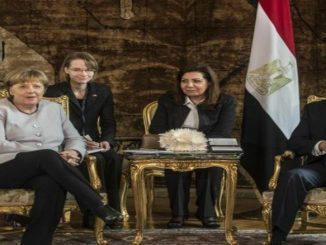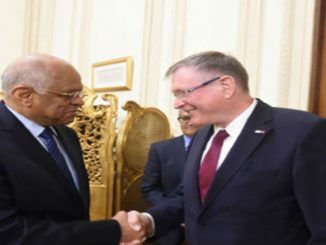
Six decades have passed since Gamal Abdel Nasser, a former president of Egypt, nationalized the Suez Canal. However, some western countries still believe that Egypt still resonates geopolitical location. Through the Suez Canal, the country lies at the nexus of Africa, Asia, and Europe.
Foreign Affairs magazine shed the light on the secret behind Europe’s armament to the Egyptian naval forces on its article titled: “Why Europe is floating Egypt’s navy?”
Deterioration of the Egyptian-French Relations in the Nasserist Era
In 1956, when Nasser nationalized the waterway, dug by under the French supervision since 1859, the canal has complicated ties between Cairo and the rest of the world.
As a result, France joined forces with the United Kingdom to reacquire it. In response, Nasser sunk 40 ships, closing the waterway to all shipping.
In the two decades that followed, France tried after the nationalization of the Suez Canal to create strong alliance with Israel and it became “Israel’s chief foreign ally.”
In this context, its main forms of support to Israel was France’s sale of Fouga Magister jet fighters to Israel and its assistance with the nuclear program at Dimona.
As Paris cultivated Tel Aviv as an ally, Cairo backed the anti-colonial revolt in Algeria. Meanwhile, between 1967 and 1975, the canal was closed to all shipping.
However, as the Nasserist era ended, France pivoted away from Israel and began to restore its traditional trade relationship with Cairo.
After Egypt and Israel signed the Camp David Accords in 1978, the Suez Canal became one of the most secured naval routes in the world, handling 7.5 % of the world’s total ocean trade.
French-Egyptian Relationship Deepens
Now, the French-Egyptian relationship is set to deepen.
The American magazine highlighted that France became the main gate in the relation between Egypt and the Europe because of its role in digging the Suez Canal.
“France is looking to Egypt as a military partner to deal with the threat to trade from terrorist groups along with the Mediterranean migrant crisis,” according to the Foreign Affairs.
It is investing in turning Egypt into a major force in the region. “I believe that, given the current context, it’s very important that Egypt is able to act to uphold stability and to be in security, not only stability on its own territory, but stability in the region,” French President Francois Hollande remarked in February 2015 as his government moved to sell Cairo the latest in French military hardware and schedule a series of joint exercises.
In this context, France worked on the armament of Egypt’s naval force. On June 2, 2016, Egypt received the first of two helicopter carriers, Mistral-class LHDs. In addition, France also sold to Egypt four Gowind corvettes to Egypt in 2014 and a FREMM multi-mission frigate in August 2015.
Egyptian Mistral-class LHDs weigh 22,000 tonnes and measure 199 meters in length. The ships have six helicopter landing spots and are capable of carrying 16 heavy or 35 light helicopters.
The original Mistral sale contract was worth €1.2 billion ($1.3 billion) while the reported price Egypt paid for the ships was around €950 million.
Moreover, France signed a €5.2 billion contract for the sale of 24 Rafale fighter jets to Egypt.
In addition, France carried out joint maneuvers with Egypt in the Mediterranean in which French Rafale warplanes purchased by Cairo were taking part in it.
In addition, France shared with the Egyptian naval forces in “Ramses 2016” and “Cleopatra 2016” military and naval exercise which was held off the coast of the Mediterranean city of Alexandria.
Egypt’s Navy Has the Upper Hand in the Region
The Foreign Affairs described that the Egyptian navy has now the upper hand in the Middle East region which became a source of concern among many officials in the Israeli army.
In this context, the American magazine quoted a senior Israeli official in the National Security saying, “Today Cairo is an important player in the Mediterranean Sea, and the Egyptian Navy is stronger now than any previous time. It has one of the best equipped naval forces in the region and the world, and its fleet has exceeded 319 ships.”
The American magazine pointed out that power of the Egyptian navy pushed other western countries to hold military exercises and conclude arm deals with Cairo, among most notable was the joint naval maneuvers conducted between Britain and Egypt.
The maneuvers witnessed the first visit of a British warship to the port of Alexandria since the evacuation of British troops from Egypt 1950s.
The British ambassador, John Casson, said that the naval trainings reflect the depth of the relations between the two countries
Southern Europe’s Main Guard
Germany also competed to play a role in establishing military partnership with Egypt after it declared that it will supply Egypt with four modern submarines.
It is noteworthy that Germany has rejected to hand over those submarines to Egypt several times before.
In the same context, Chancellor Angela Merkel words, which described Cairo as the” Main Guard for Southern Europe”, clearly justify Europe’s continuous support to Egypt’s naval force, as it believes that empowering Egypt will activate Europe’s plan in fighting terrorism and illegal migration in the Mediterranean Sea.
According to Der Spiegel, the German magazine, Chancellor Merkel tried during her visit to Egypt last March to convince Cairo to support the European-Turkish agreement which blocked the Balkan route against the Syrian immigrants.
The German magazine quoted a source close the Egyptian authorities saying that Berlin tried to win Egypt’s agreement to return the illegal immigrants back to Libya’s eastern border under the protection of its navy,but Egypt didn’t agree on this deal due to its threats form escalating the immigrants crisis in Libya.



